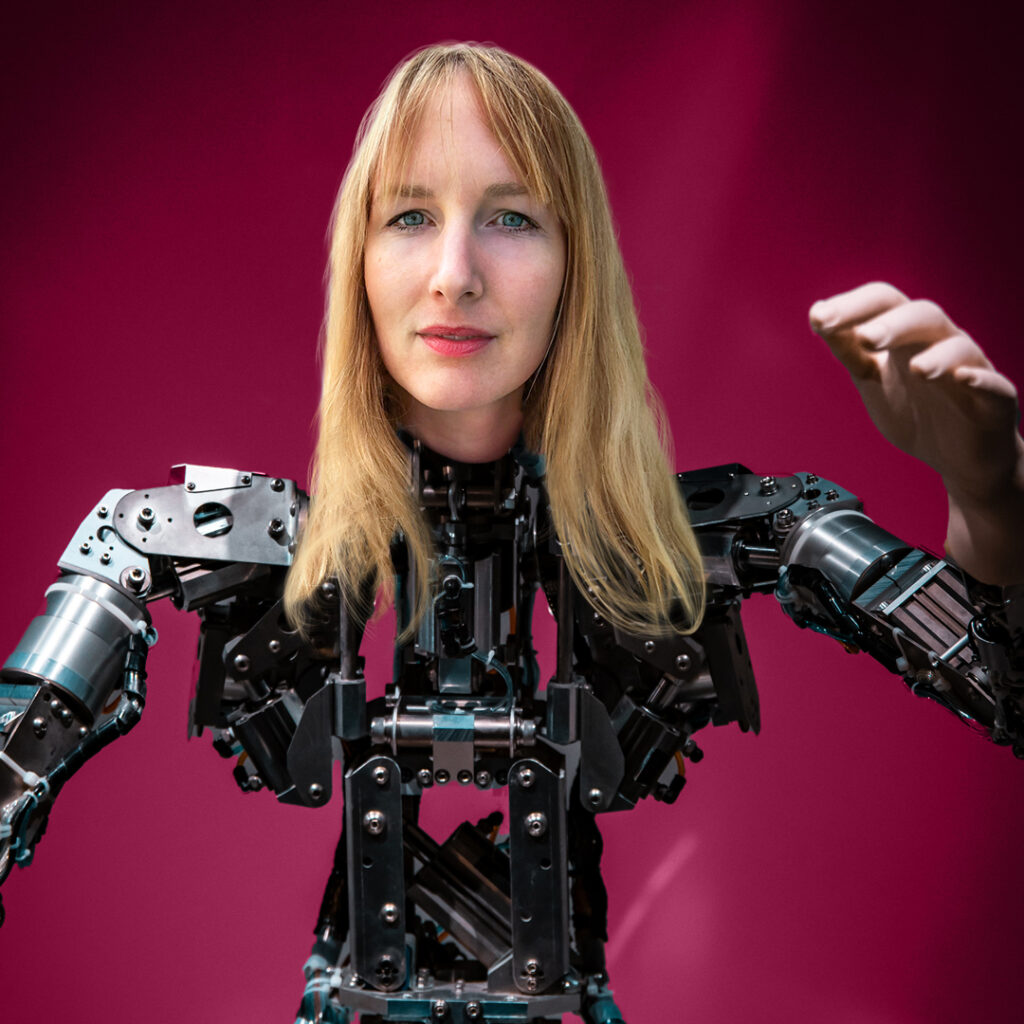The Defence – Lizzie Hutchison
Thursday 15th December, 3.34pm. I’m at our team’s Christmas lunch, sipping my second glass of rosé. And I receive the following email:
Hey Lizzie! Any chance you could write a blog post in the new year titled:
Is it the end of the professional writer?
Wow. Nothing kills the lunch-buzz faster than the promise of a P45 if you don’t prove you’re more talented than a robot. Cheers guys. So, please enjoy the next few paragraphs of relaxed, afternoon copy imbued with a subtle note of desperation.
AI is great. No, really. Probably in 20 years it will have us all out of a gig. But until then, I’m happy to say I’m the better writer. And yes, I’ll tell you why. Lord knows I have to. AI copy is functional. It’s moderately more interesting than Lorem Ipsum, but it reads like someone who’s dead inside. And well, by virtue of being alive, I can add a little sparkle and warmth that gives me the edge. AI knows how to tell you a joke (and actually I did chuckle) but I don’t think it’s yet learnt when to use sarcasm for effect. It doesn’t have the initiative to use ‘call backs’ from earlier topics in the piece. To employ wit, metaphor or even capital letters when you want to be a bit SHOUTY.
That said, I’m better, but not quicker. If you need words on a page pronto, then go for your life. Dial up ChatGPT and you’re away. I can see GCSE students getting a sneaky draft of ‘An essay exploring the theme of conflict in Romeo and Juliet’ and sliding it in, seconds before the deadline.
AI does words, fast. But would you want to put them in front of a client? Would you introduce your robot to your real-life human who’s shelling out the big bucks to be reassured that their creative is in the hands of someone who’s had several years deftly negotiating the nuances of different brands? Who can explain every choice for a word, or at least make a good show of post-rationalising it?
No. Well, I certainly wouldn’t. But then I’m fighting for a job. I’m more expensive than a $50 monthly subscription. I’m arguably more difficult to work with. I don’t like people changing my nice words and undoubtedly brilliant ideas, because I care about the work. AI, to be fair, doesn’t have an ego. It doesn’t answer back. It doesn’t get all huffy if you ask it to justify its job role. And its spelling is better, too. It all comes down to the benefit of being a human. Can you take AI out for lunch? Negative. And until then, this round’s on me. Cheers.
The Rebuttal – ChatGPT
The world of writing has undergone significant changes in recent years, thanks in large part to the proliferation of technology and the internet. With the advent of blogs, social media, and other online platforms, it has become easier than ever for people to share their thoughts and ideas with a global audience. This has led some to speculate that the rise of digital media may spell the end of the professional writer.
At first glance, this may seem like a reasonable assumption. After all, if anyone can publish their writing online, why would anyone pay a professional writer to do it for them? However, upon closer examination, it becomes clear that the rise of digital media has actually created new opportunities for professional writers.
First of all, the sheer amount of content being produced and consumed online has increased dramatically in recent years. This has created a demand for professional writers who can create high-quality, engaging content that stands out in the crowded digital landscape. Whether it’s blog posts, articles, social media posts, or other forms of digital media, there is no shortage of opportunities for professional writers to put their skills to use.
Additionally, the rise of digital media has made it easier for professional writers to reach a global audience. In the past, writers had to rely on traditional publishing outlets to get their work in front of readers. This often meant dealing with gatekeepers who controlled access to the market. But now, with the internet, writers can bypass these gatekeepers and publish their work directly to a global audience. This has created new opportunities for writers to build their brand and establish themselves as thought leaders in their field.
Furthermore, the rise of digital media has also led to the development of new business models for professional writers. In the past, writers were often limited to a few traditional revenue streams, such as book sales or freelance writing fees. But now, thanks to the internet, writers can earn money in a variety of ways, including through advertising, sponsored content, and even through the sale of digital products, such as e-books and online courses.
In short, while the rise of digital media may have disrupted the traditional publishing industry, it has also created new opportunities for professional writers. Far from being the end of the professional writer, the rise of digital media has actually opened up a whole new world of possibilities for writers to share their work with a global audience and earn a living from their writing.



